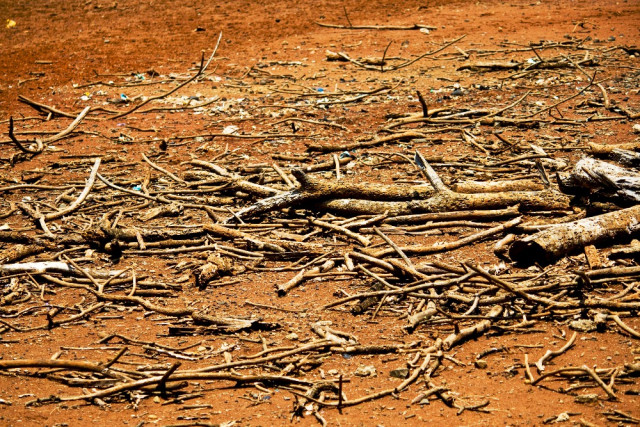It’s time to get serious about climate change
K-P Environment Proctection Agency DG says these changes will result as floods and inundation of agricultural lands

It’s time to get serious about climate change
“Khyber-Pakhtunkhwa (K-P) is facing massive climatic changes, which will not only affect cropping patterns but also result as floods and inundation of agricultural lands,” said Director General, K-P Environment Protection Agency (EPA) Dr Muhammad Bashir Khan, talking to The Express Tribune.
Climate change, according to environmentalists, is exacerbated by emission of gases from fuel combustion, urbanisation and deforestation, and an increase in temperature is a result. Peshawar, Charsadda, Mardan, Bannu, Dera Ismail Khan and Swat districts are famous for making bricks. Some 450 brick kilns are located in and around the Peshawar conurbation, using coal, wood and, despite the ban, rubber. There are some 1,500 industrial units in the province, according to EPA.

Khan added that environmentalists are working to ensure a stable food chain, and helping agriculturists adapt their practices in accordance with the changing patterns of climate.
An environmental management plan (EMP) has recently been set up at the EPA office, with regional offices in Dera Ismail Khan, Hazara and Malakand to monitor and collect detail about climate change and its impacts on K-P.
The aim is to mitigate and counter negative impacts, control the decline of groundwater especially in Karak, and inform about any sudden climatic calamity. The project will help farmers cope with climate change issues.
“The sudden rains that turn into floods, causing erosion of agriculture lands and destruction of standing crops, are mostly due to erratic changes in climate,” said Dost Muhammad Khan, professor at the soil and environmental science department, Agriculture University Peshawar. He added that gradual climate change in the province is affecting the water resources, agriculture, vegetation, forests, snow cover, fresh water habitat and geological impacts. Dost added that “climate change is now a real phenomenon for which the province has to prepare itself.”
The southern enclaves of Peshawar are becoming increasingly arid with annual rainfall declining from 600 mm to below 250 mm. Thus, the rain pattern seems to have changed, which results in floods and damage to standing crops. The increase in temperature impacts snow-melting, which leads to floods.
The recent most example of devastation caused by climate change was the July 2010 floods in K-P in which 1156 people lost their live and 0.2 million houses were either damaged or completely destroyed. Luckily, in K-P, so far there has been no drought.
Published in The Express Tribune, November 1st, 2014.













COMMENTS
Comments are moderated and generally will be posted if they are on-topic and not abusive.
For more information, please see our Comments FAQ